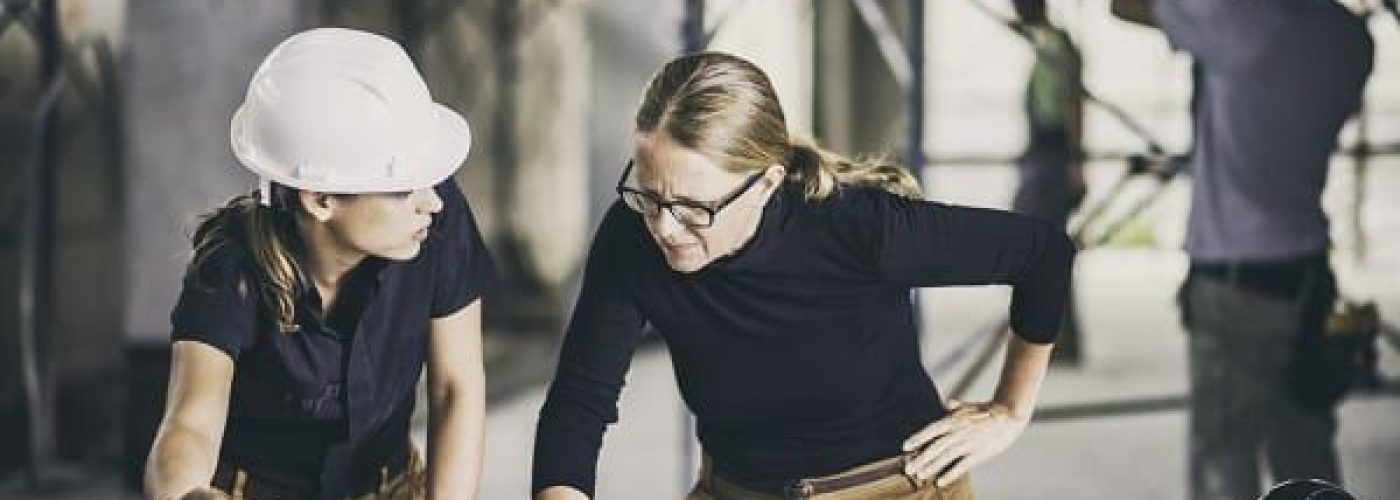The Building Engineering Services Association (BESA) marked this year’s International Women in Engineering Day (INWED) by celebrating the important role played by women in the past, present and future of building services.
It featured a series of ‘guest blogs’ during the week of the 9th annual INWED that reflected the initiative’s 2022 theme of highlighting the inspirational work of women engineers globally to support “lives and livelihoods”.
“The profile provided by INWED is as vital as ever because women remain hugely under-represented in many engineering professions – including ours,” said BESA vice president Claire Curran. “As the only platform of its kind, it plays an important role in encouraging more young women and girls to take up engineering careers.
“Overall numbers of women coming into engineering are on the up, but progress is still slow. Our work around INWED highlighted the key part played by role models and mentors in the recruitment and retention of women.”
BESA also promoted the importance of women in engineering through its special Women in Building Services Award, which was set up to recognise outstanding women working in the sector – with particular emphasis on their contribution to sustainability and innovation.
Entries
The Association called for entries from across the industry so it could celebrate “a truly inspiring person who champions the sector and drives positive change” at its National Awards event on October 20th in London.
That evening will also see the presentation of BESA’s first ever award for Diversity and Inclusion. This has been established to reward those companies who have shown the greatest commitment to recruiting, advancing, and supporting all employees regardless of gender, ethnicity, religion, or disability.
BESA’s guest blogs for INWED were provided by several prominent women in engineering to help promote the range of exciting careers open to women in building services.
Curran provided the first where she encouraged other women to follow in her footsteps. “It is a colourful and varied industry with lots of diverse opportunities; where you can be anything you want to be.”
She said it was important for the industry to present a more positive image: “We are not very good at shouting about the great stuff we do, the cool stuff. As a result, many women have a negative image of the sector – yet my career in engineering has allowed me to travel the world and get involved in some amazing, exciting projects.”
Andi Connelly Horsley, mechanical engineer and technical publications lead at BESA, said women were good at challenging the status quo and bringing a fresh perspective to engineering challenges.
“Why do we engineer things? Why do we do it like that? Is it because we have always done it that way? Why not try this instead?” she wrote. “The client is interested in the outcome so ‘why’ should always be the first question – then you look at the how and the what.”
CIBSE Graduate of the Year Award winner Lucy Sherburn also highlighted the importance of mentors who could help young women feel comfortable and reach their full potential.
“I love the fact that I am constantly learning and discovering new things,” she wrote. “This means I am making a real difference and having an impact on the decarbonisation of heat, which is one of the biggest challenges we face as a country.
“Women have so much to offer to this industry and often they don’t realise that their skills are just what we need,” added Sherburn. “There are amazing opportunities opening up thanks to the net zero agenda and the push to make buildings healthier and more sustainable.”
Alexandra Knight, the founder of Stemamazing – the initiative created to promote greater diversity in Science, Technology, Engineering and Maths – provided the BESA blog on the day of INWED itself. She claimed that people working in STEM were “the hidden heroes of humanity” who get very little credit for “keeping society functioning”.
Innovation
“As we evolve through the 4th Industrial Revolution and beyond, the need for innovation in STEM will continue to increase at pace. Innovation in STEM is key to solving some of our biggest global challenges – and a key ingredient for innovation is diversity,” she wrote.
The week ended with a retrospective blog about how female pioneers had been responsible for many of the innovations that had paved the way for renewables in buildings.
Jarne Veronica wrote that people might be surprised that women were so influential in this vital industry because they are so under-represented in careers linked to engineering and building services.
“However, this is just more evidence that women have been playing a crucial (and often unsung) role in our sector for decades and, as representation improves, that influence will surely grow.”
For more information about INWED click here and to enter for one of the BESA National Awards click here. www.theBESA.com





